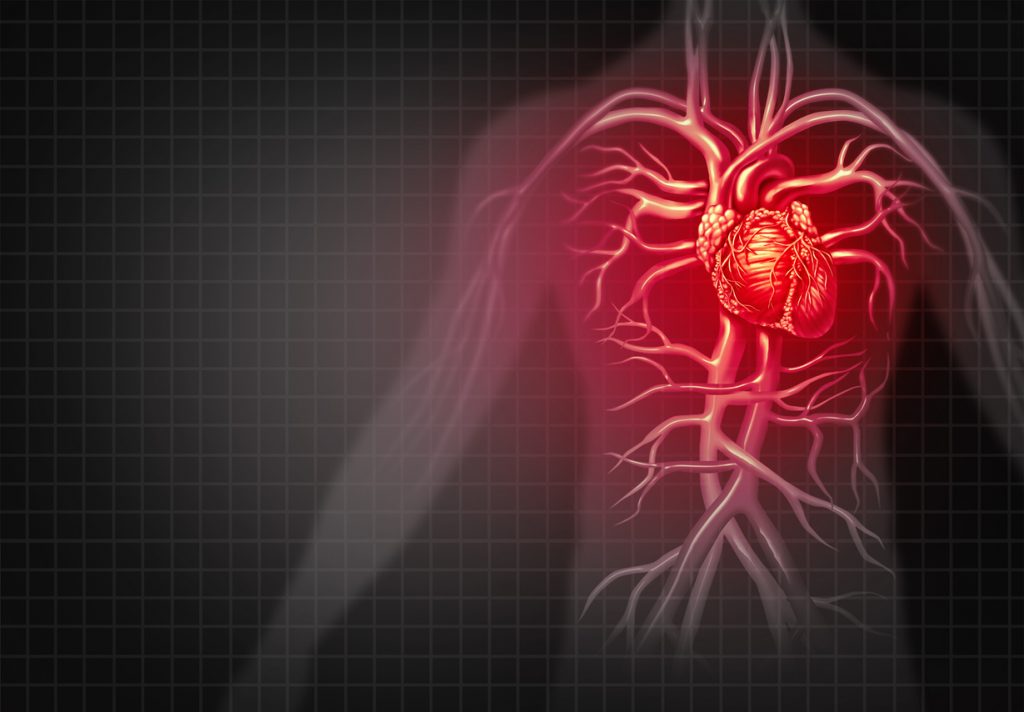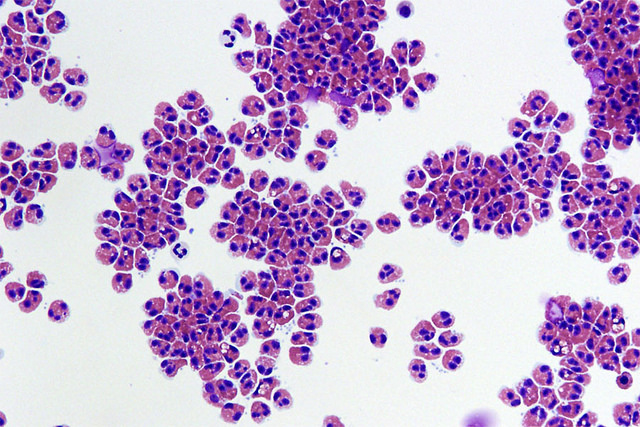The purpose of this study is to determine which of two treatments, Warfarin or aspirin, is better for preventing death and stroke in patients with poor heart function.
The purpose of this study is to determine which of two treatments, Warfarin or aspirin, is better for preventing death and stroke in patients with poor heart function. Condition: – Heart Disease- Stroke- Ischemic Heart Disease- Myocardial Infarction- Atrial Fibrillation Study Type: InterventionalStudy Design: Prevention, Randomized, Double-Blind Further Study Details: Warfarin has proven effective in patients with ischemic heart disease, especially in the reduction of stroke, death and re-infarction following myocardial infarction, and in the reduction of stroke in atrial fibrillation. Warfarin is the most promising unstudied intervention in patients with cardiac failure. This randomized, double-blind, multi-center study will define optimal antithrombotic therapy for patients with cardiac (heart) failure and patients with low ejection fraction (EF). EF is the proportion of left ventricular volume emptied during systole. It reliably measures left ventricular systolic function. With the rapidly increasing numbers of elderly patients with heart failure, this study has important public health implications. The study will determine which of two commonly used treatments Warfarin, an anticoagulant, or aspirin, a drug which affects platelet function is better for preventing death and stroke in patients with low ejection fraction. Eligibility Ages Eligible for Study: 18 Years and above, Genders Eligible for Study: Both Criteria Inclusion CriteriaCardiac EF <=30% by radionuclide ventriculography, left ventriculography or quantitive echocardiographic measurement or an echocardiographic Wall Motion Index of <=1, within three months of enrollment. The patients clinical cardiac state at enrollment should be similar to their state at the time of the qualifying echocardiogram. The qualifying left ventricular function measurement must be obtained at least three months after an MI, coronary bypass grafting, PTCA, and at least one month after pacemaker insertion. Patients scheduled for mitral valve repair should have qualifying echo after surgery. Modified Rankin score <=3. Patient must be taking ACE inhibitors. If intolerant of ACE inhibitor, patient must be on angiotensin II receptor blockers or hydralazine and nitrates. Patient is able to follow an outpatient protocol (requiring monthly blood tests and clinic visits every four months for the duration of the study) and is available by telephone. Patient understands the purpose and requirements of the study, can make him/herself understood, and has provided informed consent. Patients with recent stroke or TIA within twelve (12) months will be eligible to be included in the recent stroke (RS) subgroup. Chronic CHF patients admitted to the hospital can be randomized prior to discharge if the patient is stable, taking oral medication for 24 hours and ambulatory at the time of discharge. Exclusion CriteriaThe presence of any of the following unequivocal cardiac sources of embolism: chronic or paroxysmal AF, mechanical valve, endocarditis, intracardiac mobile or pedunculated thrombus, and valvular vegetation. Cyanotic congenital heart disease, Eisenmengers syndrome. NYHA class IV or decompensated heart failure. Cardiac surgery, angioplasty, or MI within the past 3 months. A contraindication to the use of either warfarin or aspirin, e.g. active peptic ulcer disease, active bleeding diathesis, platelets <100,000*, hematocrit <30, INR >1.3 (if not on warfarin), clotting factor abnormality that increases the risk of bleeding, alcohol or substance abuse, severe gait instability, cerebral hemorrhage, systemic hemorrhage within the past year, severe liver impairment (AST >3x normal*, cirrhosis), any condition requiring regular use of non-steroidal anti-inflammatory agents, allergy to aspirin or warfarin, uncontrolled severe hypertension (systolic pressure >180 mm Hg or diastolic pressure > 110 mm Hg), positive stool guaiac not attributable to hemorrhoids, creatinine >3.0*. (*on most recent test done within 30 days prior to randomization) Patient needs continuing therapy with intravenous heparin or low molecular weight heparin or a specific antiplatelet agent. Dementia or psychiatric or physical problem that prevents the patient from following an outpatient program reliably. Comorbid conditions that may limit survival to less than five years. Pregnancy, or female of childbearing potential who is not sterilized or is not using a medically accepted form of contraception*. Enrollment in another study that would conflict with the current study. Hospitalization for new diagnosis of onset CHF within the past one month or carotid endarterectomy or pacemaker insertion within the past month. Person under 18 years of age. *A pregnancy test is required for all women of childbearing age.Expected Total Enrollment: 2860 [1] University Medicine and Dentistry of New Jersey, Department of Neurosciences, Newark, New Jersey[2] National Institute of Neurological Disorders and Stroke (NINDS)
All content and media on the HealthEngine Blog is created and published online for informational purposes only. It is not intended to be a substitute for professional medical advice and should not be relied on as health or personal advice. Always seek the guidance of your doctor or other qualified health professional with any questions you may have regarding your health or a medical condition. Never disregard the advice of a medical professional, or delay in seeking it because of something you have read on this Website. If you think you may have a medical emergency, call your doctor, go to the nearest hospital emergency department, or call the emergency services immediately.







